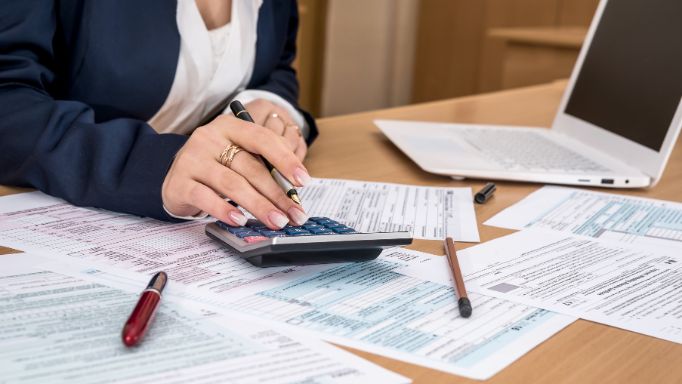Tax Advantages of Investing in UAE Property
Investing in property in the UAE comes with notable tax benefits.
First, there are no annual property taxes. This means more of your income from rentals stays in your pocket.

Another advantage is the absence of capital gains tax. When you sell your property, you do not have to pay tax on any profit you make. This can lead to significant financial rewards.
Additionally, the UAE offers favorable conditions for foreign investors. Your investment can gain value without heavy taxation, making it an attractive option compared to many other countries.
Being a property owner can also provide you with Golven Visa for residency in Dubai. This means you can enjoy living in the UAE while increasing your investment’s worth.
To explore the benefits further, you might want to examine what the Dubai real estate market offers.
This information can further assist you in making informed investment decisions that fully leverage these tax advantages.
Investing in real estate in Dubai allows you to diversify your portfolio while enjoying these financial perks.
Maximizing your investment will not only help you grow wealth but also secure your future.
Investing in Residential vs. Commercial Property
Understanding the differences between residential and commercial property investment is crucial.
Each type has unique benefits and challenges regarding tax implications and potential returns.

Residential Property Investment
Investing in residential properties often provides faster tax benefits.
In many cases, you can depreciate the value of the property over 27.5 years, which results in considerable tax savings.
Additionally, residential properties tend to yield higher rental income due to strong demand in urban areas.
You also have the potential for significant appreciation, especially in sought-after locations.
Shorter lease terms, typically lasting one year, can be a disadvantage. This leads to higher turnover rates and the need for constant marketing to fill vacancies.
Commercial Property Investment
Commercial properties usually have longer lease terms, often 3 to 10 years, which provides stable and predictable income.
This type of investment can also offer tax advantages through depreciation over 39 years but at a slower rate than residential properties.
The initial investment for commercial properties is generally higher.
This could mean larger capital outlay and possibly larger loans. However, they can yield higher returns, especially in prime business locations.
Investors should also note that commercial spaces often require more intensive management.
Strategies for Maximizing Tax Benefits
Investing in property in the UAE offers several tax advantages.
Here are some strategies to help you maximize these benefits:
- Understand Transfer Fees
When purchasing property, pay attention to the transfer fee of about 4% of the property value. This is a necessary expense but part of your investment.
- Leverage Depreciation Deductions
You can claim depreciation on your property to lower your taxable income. This deduction accounts for the wear and tear of your investment.
- Utilize Expense Deductions
Keep track of all expenses related to your rental property. These can include management fees, repairs, and property taxes. Deductions help reduce your taxable income.
- Consider Long-term Ownership
Holding properties for the long term may reduce your capital gains tax when you sell. This strategy can enhance your profit over time.
- Explore Rental Income Deductions
If you receive rental income, you might deduct a percentage of it. This could be about 20% of your net rental income or a portion of your property cost.
- Seek Professional Advice
Consulting a tax advisor can provide personalized strategies tailored to your investment portfolio, ensuring you utilize all available deductions.
By applying these strategies, you can optimize your tax benefits and improve your overall investment returns.
Additional Considerations for Property Investors
Investing in property in the UAE requires a careful look at several important aspects.
Understanding the long-term financial effects, diversifying your investment choices, and being aware of how global economic changes can impact your decisions are vital for success.
Long-Term Financial Implications
When investing in property, consider the long-term financial outlook.
While the UAE has a tax-friendly environment, being aware of transactional taxes is crucial. For example, you will pay a transfer fee of about 4% when buying a property.
Ongoing costs include property management fees, maintenance costs, and municipal taxes, such as the 5% rental tax for expats.
Diversifying Investment Portfolio
Investing in different types of properties, such as residential, commercial, or vacation rentals, allows you to balance your income sources.
Engaging in short-term rentals can yield high returns, especially in popular tourist areas. Moreover, it may be beneficial to consider the potential of green or sustainable properties.
These types of investments not only appeal to environmentally conscious renters but may also offer tax benefits.
Impact of Global Economic Changes
Global economic conditions can influence your investment decisions.
During economic downturns, property values may decline, impacting rental income. Understanding these trends can help you make informed decisions about when to buy or sell.
Keep an eye on interest rates and inflation. Rising rates can increase borrowing costs, affecting your overall profit.
Conversely, economic growth can boost rental demand and property prices.
Be prepared to adjust your strategy based on current market conditions to protect and enhance your investments.
Regularly review global and local market insights to stay updated on trends that affect your investment.
About QUBE Development:
QUBE Development, a subsidiary of DHG Investments, is a leading real estate developer in Dubai of high-quality residential and commercial properties. Standing on a 30-year legacy of experience and excellence, QUBE is dedicated to transforming living spaces in the UAE by integrating sustainable architecture, captivating design, and unparalleled amenities.
As a community-focused property developer in Dubai, QUBE Development aims to set the benchmark for real estate development by creating the foundation for generational wealth for customers. The company prioritizes durability and quality in every project. Expanding its portfolio throughout the UAE, QUBE Development responds swiftly to the evolving market demands, maintaining a commitment to providing the highest quality builds through collaborations with world-renowned architects and in partnership with a dedicated contractor to ensure meticulous attention to design and construction.
Real Estate In Dubai UAE | Real Estate Company In Dubai | Top Property Developers In Dubai | Buy Dubai Property | Real Estate Developer In Dubai | Off Plan Dubai | Off Plan Property Dubai




